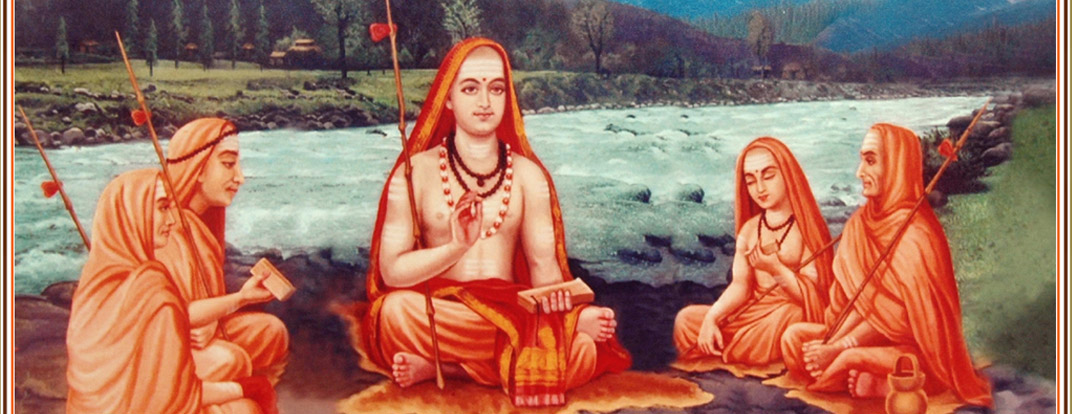
Vedanta is not a theory nor practice. It is just you.
– Pujya Swami Dayananda Saraswati
Hindu culture is based on a body of Knowledge known as Veda. This knowledge is organized in four books, known as Rigveda, Yajurveda, Sāmaveda and Atharvaveda. Vedanta is the end portion of the Vedas and the texts contained in this portion are known as the Upanishads.
Vedanta examines the essential nature of the Self through a method of Listening, Reflection and Contemplation. Immortality and Freedom from the cycle of life and death are revealed as the true nature of the human being and any form of life.
The traditional study of Vedanta is based on the Upanishads, Bhagavad Gītā and Brahma Sūtra along with the commentary of the Sage Ādi Śankarācārya.
The Vedanta classes at ATMA VIDYA are regular, systematic and in keeping with the Vedic Tradition. Sonia Novaes guides the student through the classical Vedanta texts, in an oral exposition, following the traditional methodology of teaching.
The participant can follow the classes online, or listen to recordings of the classes at his own pace. Students are invited to bring up their doubts at class time, or send an email. All doubts and questions will be clarified and addressed by the teacher.